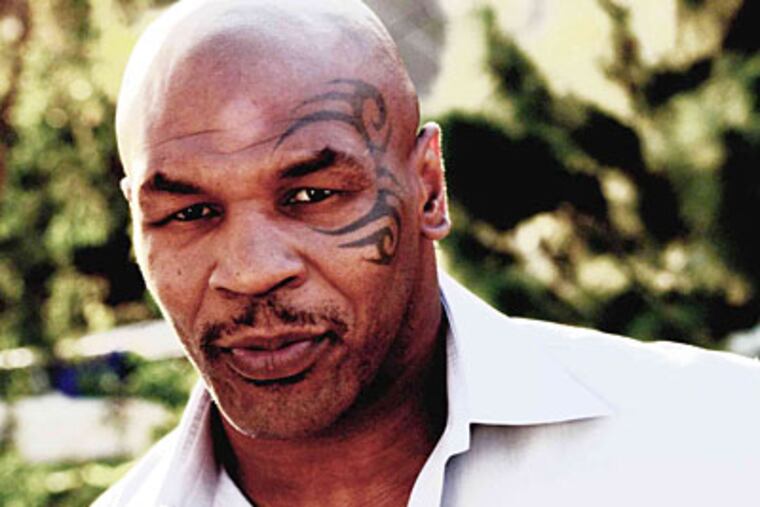Engrossing portrait, not entirely credible
Soft-spoken, contemplative, weepy, the subject of James Toback's documentary Tyson - Mike Tyson, former heavyweight champion of the world - is not the ferocious, ear-biting, head-butting convicted rapist ("falsely accused," he insists) that the media have painted him to be.

Soft-spoken, contemplative, weepy, the subject of James Toback's documentary Tyson - Mike Tyson, former heavyweight champion of the world - is not the ferocious, ear-biting, head-butting convicted rapist ("falsely accused," he insists) that the media have painted him to be.
Well, he could be all that, too.
A hugely engrossing documentary portrait - albeit one with an unreliable narrator sitting for the portrait - Tyson is an American Dream story with a decidedly bittersweet middle (and final?) act. Here Tyson sits, his Maori warrior tattoo etched on his face, talking humbly about his Brooklyn childhood (running with gangs, going to juvenile prison). He gets choked up discussing Cus D'Amato, the trainer who coached him, nurtured him, changed him.
"He broke me down and rebuilt me [as a] totally different person," says the boxer, who went on to compete in the Junior Olympics. When he was 20, he won the WBC title. He took his first 19 professional contests by knockout. Iron Mike.
Toback, the writer (Bugsy) and director (Fingers, Two Girls and a Guy), has known Tyson for close to 25 years. Culled from more than 50 hours of interview footage, and incorporating film and video of many of Tyson's pivotal matches (Michael Spinks, Evander Holyfield, James "Buster" Douglas), Tyson presents a complex man, teeming with contradictions.
Retired from the ring and 41 when the interviews were shot, Tyson says that as a kid he was bullied, that he learned to fight out of fear: "I'm just afraid of being . . . physically mutilated in the streets again." He talks about "the makeup of the mind." He recites a poem by Oscar Wilde.
Toback runs a clip of the Barbara Walters interview with Tyson and then-wife Robin Givens, in which the actress calls her spouse a manic-depressive, labels their relationship "pure hell." In the clip, Tyson sits alongside Givens, and doesn't say a word.
In Tyson, he belatedly explains himself, or tries to. He says the idea to get married was "disastrous." He defends himself against the charges of rape by Desiree Washington, a beauty queen, that sent him to jail for three years.
And he talks about money: the hundreds of millions he has gained and lost, and the "leeches" along the way. There are ugly words for promoter Don King, and no opportunity for King (or anyone else) to offer rebuttal.
Deploying multiple split screens and a discreet but effective score, Tyson is hugely engrossing at the same time that it is not entirely credible. These are one man's reflections, and memories, filtered by ego and age, by a need to right some wrongs. Still, there's amazing candor here, and a sense that if Tyson is not always straight with the facts, emotionally he speaks the truth.EndText